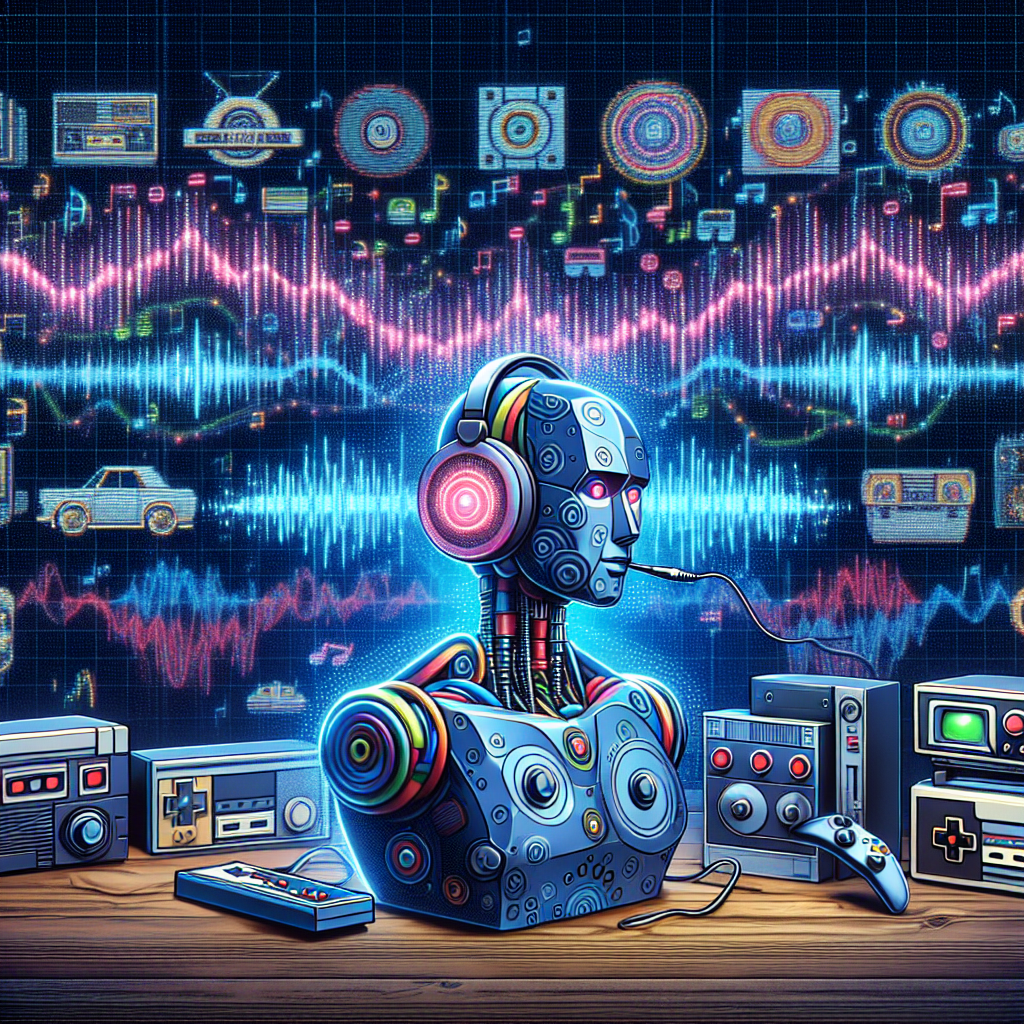The field of game audio processing has seen significant evolution in recent years, thanks in large part to advancements in artificial intelligence (AI) technology. AI has enabled game developers to create more immersive and realistic audio experiences for players, enhancing the overall gaming experience. In this article, we will explore the evolution of game audio processing algorithms and the role that AI has played in this evolution.
Evolution of Game Audio Processing Algorithms
Game audio processing algorithms have come a long way since the early days of video gaming. In the past, game audio was limited to simple beeps and boops generated by the game console’s sound chip. As technology has advanced, game developers have been able to create more complex and realistic audio experiences for players.
One of the key advancements in game audio processing algorithms has been the use of digital signal processing (DSP) techniques. DSP allows developers to manipulate audio signals in real-time, enabling them to create more dynamic and immersive soundscapes for players. DSP techniques can be used to add effects such as reverb, echo, and spatialization to game audio, making it more lifelike and engaging.
Another important development in game audio processing algorithms has been the use of procedural audio techniques. Procedural audio involves generating sound effects algorithmically, rather than using pre-recorded audio files. This allows for a greater degree of flexibility and variation in the game’s audio, as sound effects can be generated on the fly based on the game’s current state.
AI and Game Audio Processing
AI has played a significant role in the evolution of game audio processing algorithms. One of the key ways in which AI has impacted game audio is through the use of machine learning techniques. Machine learning algorithms can be trained on large datasets of audio samples to learn patterns and relationships within the data. This allows developers to create more realistic and dynamic audio experiences for players.
One example of AI-enhanced game audio processing is the use of neural networks to generate realistic speech synthesis for in-game characters. By training a neural network on a dataset of recorded speech samples, developers can create realistic-sounding dialogue for characters in the game. This can greatly enhance the immersion and storytelling capabilities of the game.
AI can also be used to enhance the realism of environmental sounds in games. For example, AI algorithms can be used to model the acoustics of different environments, such as caves, forests, or urban environments. By simulating how sound waves interact with the environment, developers can create more realistic and immersive audio experiences for players.
FAQs
Q: How does AI improve game audio processing?
A: AI can improve game audio processing in a number of ways. For example, AI algorithms can be used to generate realistic speech synthesis for in-game characters, model the acoustics of different environments, and create dynamic and immersive soundscapes using procedural audio techniques.
Q: What are some examples of AI-enhanced game audio processing in popular games?
A: Some popular games that have used AI-enhanced game audio processing include The Last of Us Part II, which used machine learning algorithms to create realistic dialogue for characters, and Red Dead Redemption 2, which used AI to model the acoustics of different environments in the game.
Q: How can developers learn to use AI in game audio processing?
A: There are a number of resources available for developers who want to learn how to use AI in game audio processing. Online courses, tutorials, and forums can be helpful for developers looking to get started with AI-enhanced game audio processing.
In conclusion, AI has played a significant role in the evolution of game audio processing algorithms, enabling developers to create more immersive and realistic audio experiences for players. By leveraging machine learning and procedural audio techniques, developers can create dynamic and engaging soundscapes that enhance the overall gaming experience. As AI technology continues to advance, we can expect to see even more innovative and immersive game audio experiences in the future.

